Pope Francis’ General Audience on the Sacrament of the Anointing of the Sick – St. Peter’s Square – February 26, 2014
Dear Brothers and Sisters, good morning!
Today I would like to speak to you of the Sacrament of the Anointing of the Sick, which enables us to touch with our hand God’s compassion for man. In the past it was called “Extreme Unction,” because it was understood as spiritual comfort in the imminence of death. To speak, instead, of the “Anointing of the Sick,” helps us to widen our look on the experience of sickness and suffering, in the horizon of God’s mercy.
1. There is a biblical icon that expresses in all its depth the mystery that shines in the Anointing of the Sick: it is the parable of the “Good Samaritan,” in Luke’s Gospel (10:30-35). Every time we celebrate this Sacrament the Lord Jesus, in the person of the priest, comes close to the one who suffers and is gravely ill or elderly. The parable says that the Good Samaritan takes care of the suffering man, pouring oil and wine on his wounds. Oil makes us think of that which is blessed every year by the Bishop in the Chrism Mass of Holy Thursday, precisely in view of the Anointing of the Sick. The wine, instead, is the sign of the love and grace of Christ that gushes forth from the gift of his life for us and is expressed in all its richness in the sacramental life of the Church. Finally, the suffering person is entrusted to an innkeeper, so that he can continue to take care of him, regardless of expense. Now, who is this innkeeper? It is the Church, the Christian community; it is we to whom every day the Lord Jesus entrusts those who are afflicted, in body and spirit, so that we continue to pour on them, without measure, all his mercy and salvation.
2. This mandate is confirmed explicitly and precisely in the Letter of James , where he recommends: “Is any among you sick? Let him call for the elders of the Church, and let them pray over him, anointing him with oil in the name of the Lord; and the prayer of faith will save the sick man, and the Lord will raise him up; and if he has committed sins, he will be forgiven” (5:14-15). Therefore, it is a practice that was already in act at the time of the Apostles. Jesus, in fact, taught his disciples to have the same predilection for the sick and suffering, and he transmitted to them the capacity and the task to continue to give freely, in his name and according to his heart, relief and peace through the special grace of this Sacrament. This, however, must not make us fall into the obsessive search of a miracle or into the presumption of being able to obtain healing always and in every case. But it is the assurance of the closeness of Jesus to the sick and also the elderly, because every elderly person, every person over the age of 65, can receive this Sacrament, through which Jesus Himself brings us closer.
But when there is a sick person, sometimes we think: “let us call the priest so he will come”; “No, then he’ll bring bad luck, don’t call him”, or perhaps “then the sick person will be frightened.” Why does one think this? Because there is a bit this idea that after the priest comes the funeral home. And this isn’t true. The priest comes to help the sick or the elderly; for this it is so important the visit of the priests to the sick.nYou need to call the priest and say: “Come, give the anointing, bless him.” It is Jesus Himself who comes to relieve the sick, to give them strength, to give them hope, to help, even to forgive them their sins. And this is beautiful! And it is unnecessary to think that this is taboo, because it is always beautiful to know that in the moment of pain and sickness that we are not alone: the priest and those who are present during the Anointing of the Sick represent the whole Christian community that, like one body clings around those who suffer and their relatives, nourishing faith and hope in them, and sustaining them with prayer and fraternal warmth. But the greatest comfort derives from the fact that is the Lord Jesus Himself who is present in the Sacrament, who takes us by the hand, He caresses us as he did with the sick and reminds us that now we belong to him and that nothing – not even evil or death – can separate us from Him. Let us have this habit of calling the priest so that our sick – and I’m not speaking of those sick with the flu for three or four days, but those with a serious sickness – and also our elderly, so that he may come and give them this Sacrament, this comfort, this strength of Jesus to go forward. Let us do this!
I greet all the English-speaking pilgrims present at today’s Audience, including those from England, Denmark, Canada and the United States. I greet in particular the participants in the World Congress of SIGNIS and the pilgrimage group of the Personal Ordinariate of the Chair of Saint Peter from the United States. With affection I greet the alumni and friends of the Pontifical Canadian College on the 125th anniversary of the College’s establishment. Upon all present I invoke joy and peace in Christ our Lord!
I give a cordial welcome to the Italian-speaking pilgrims. I greet the faithful of the diocese of Avezzano with their Bishop, Monsignor Pietro Santoro; those of Adria and of Piazza Armerina, the Deacons of the diocese of Milan, and the Legionaries of Christ who have concluded their General Chapter. I greet the members of the Confedilizia, the pensioners of Confagricoltura and the Roman Press Association. I welcome the conventioneers, the academic authorities and the sick present here for the World Day of Rare Diseases, which will occur day after tomorrow, and I hope that the patients and their families are adequately supported in their not easy course, be it at the medical or the legislative level. I greet the numerous schools, in particular the “Giordano” High School of Aversa and the “Sant’Anna-Falletti” School of Rome. May this meeting inspire in all a renewed commitment to Christian witness.
A special thought goes to young people, the sick and newlyweds. Tomorrow we will celebrate the memorial of Saint Gabriel of the Addolorata: may his example help you, dear young people, to be enthusiastic disciples of Jesus; may he encourage you, dear sick, to offer your sufferings in union with those of Christ; and may he spur you, dear newlyweds, to make the Gospel the fundamental rule of your conjugal life.

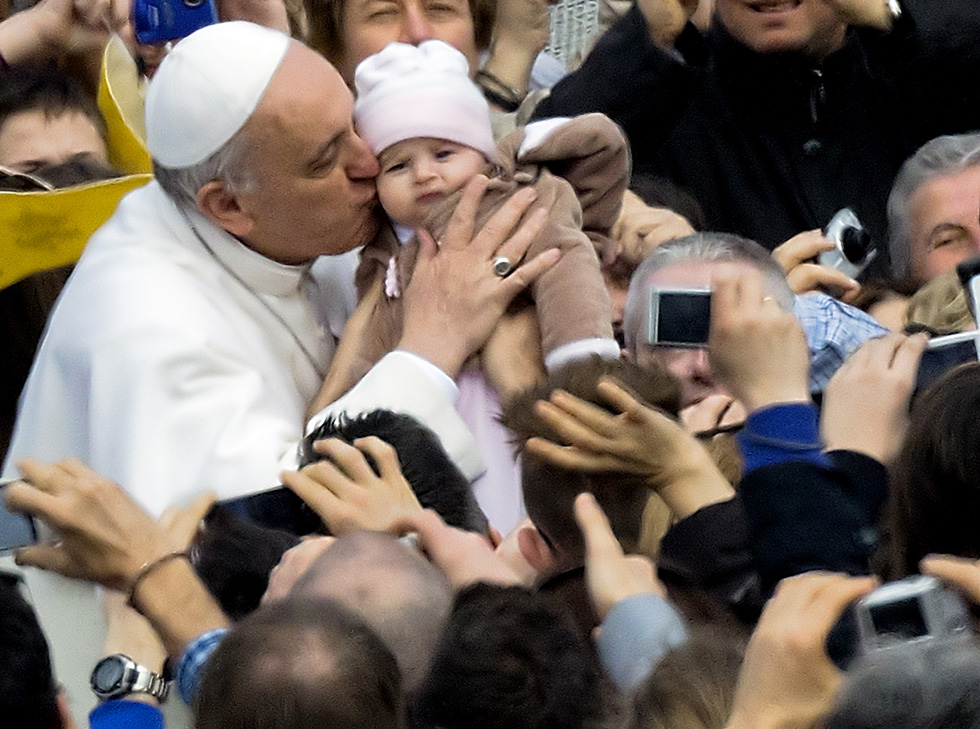
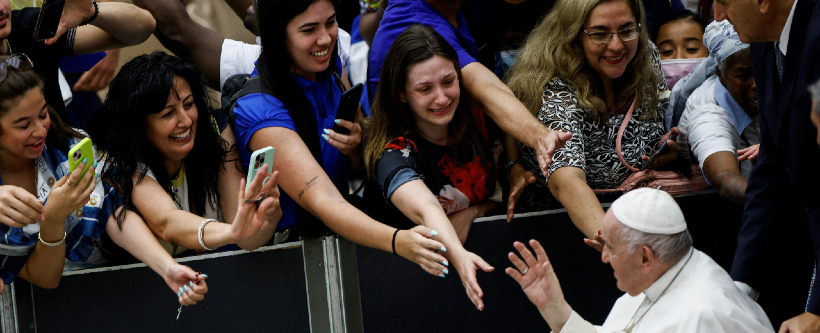
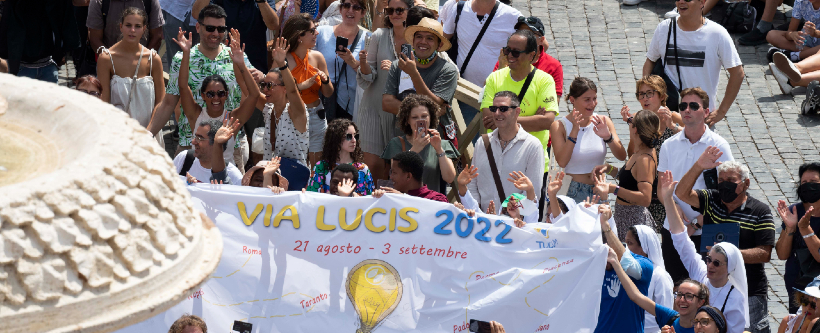
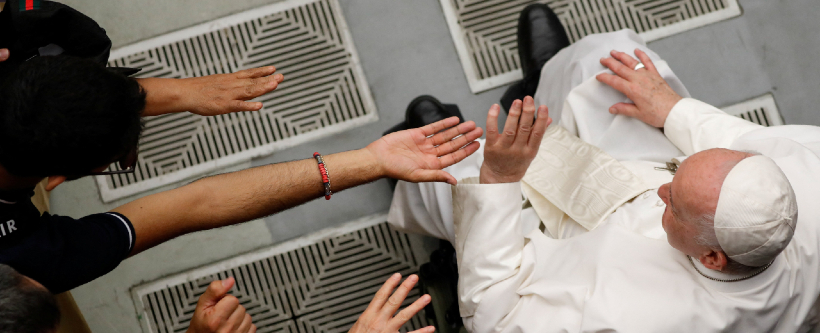
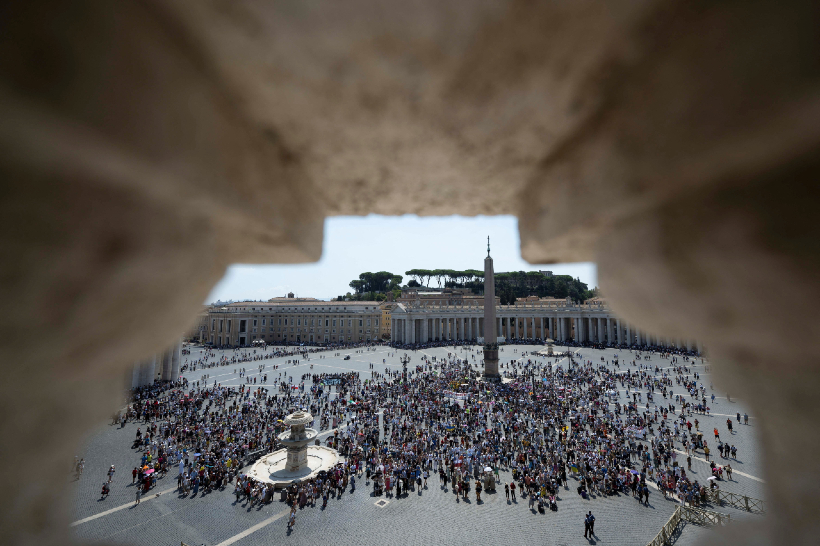
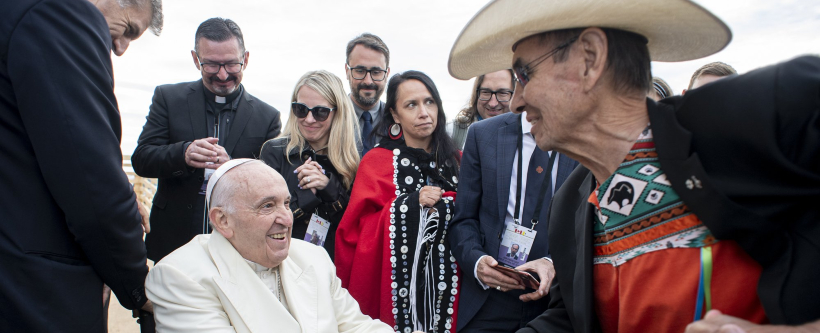
Facebook Comments